News
Lecture and Screening | The Practice of Reading Undocumented Histories, Kunsthof Zürich, October 31, 7pm
October 12, 2013
Kunsthof Zürich in cooperation with INTERCUT and Praktiken der künstlerischen Intervention at Main Auditorium present
“Carlos Motta: The Practice of Reading Undocumented Histories— Artist Talk and Screening”, Kunsthof Zürich, October 31, 7pm
more info here
Solo Exhibition | La visión de los vencidos, Galeria La Central, Bogotá, October 26- November 28
October 12, 2013
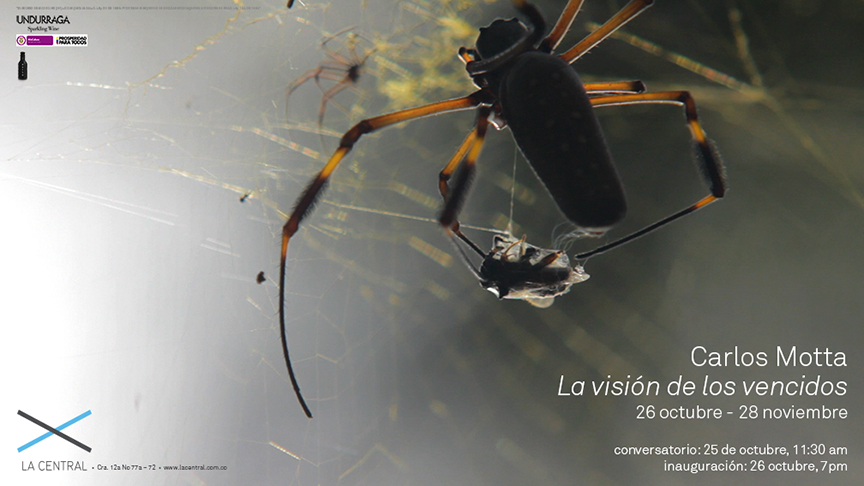
more info here
Auction | Conexión Colombia, September 23, 6-10pm, Bogotá
September 10, 2013
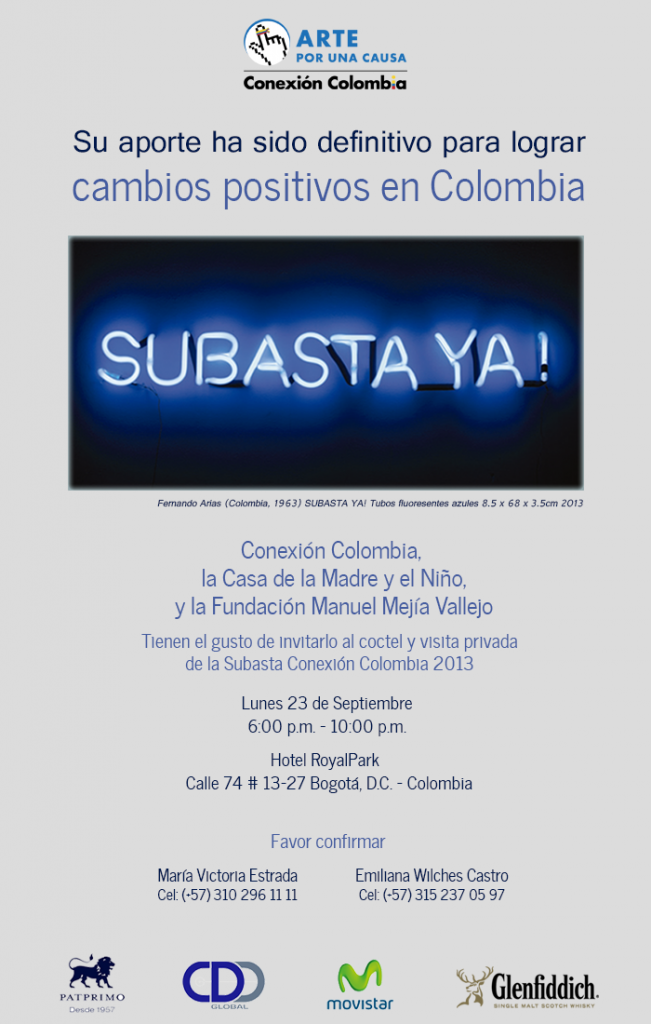
more info here
Group Exhibition | Erinnerungsfelder / Campos de memoria, Galerie Ratskeller, Berlin, September 20-October 18, 2013
August 29, 2013
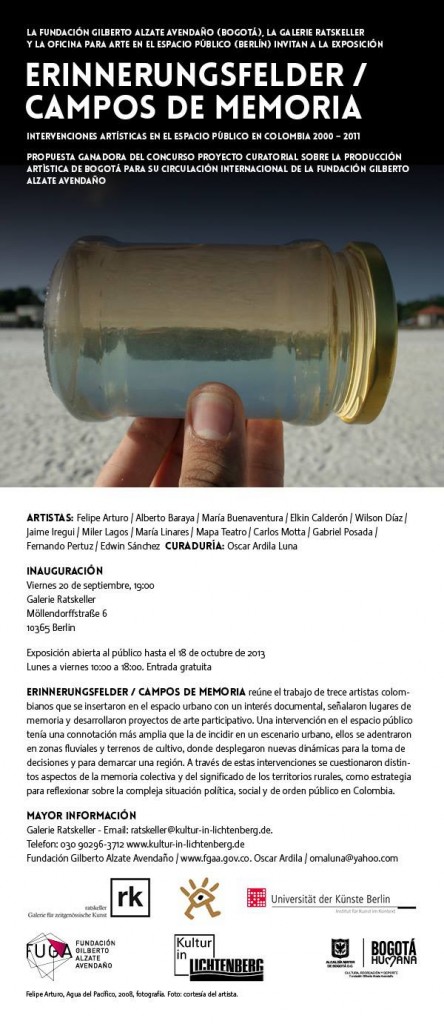
Video Screening | Where Dreams Cross at Cinema Queer lnternational Film Festival, Stockholm, September 21, 10pm
August 21, 2013
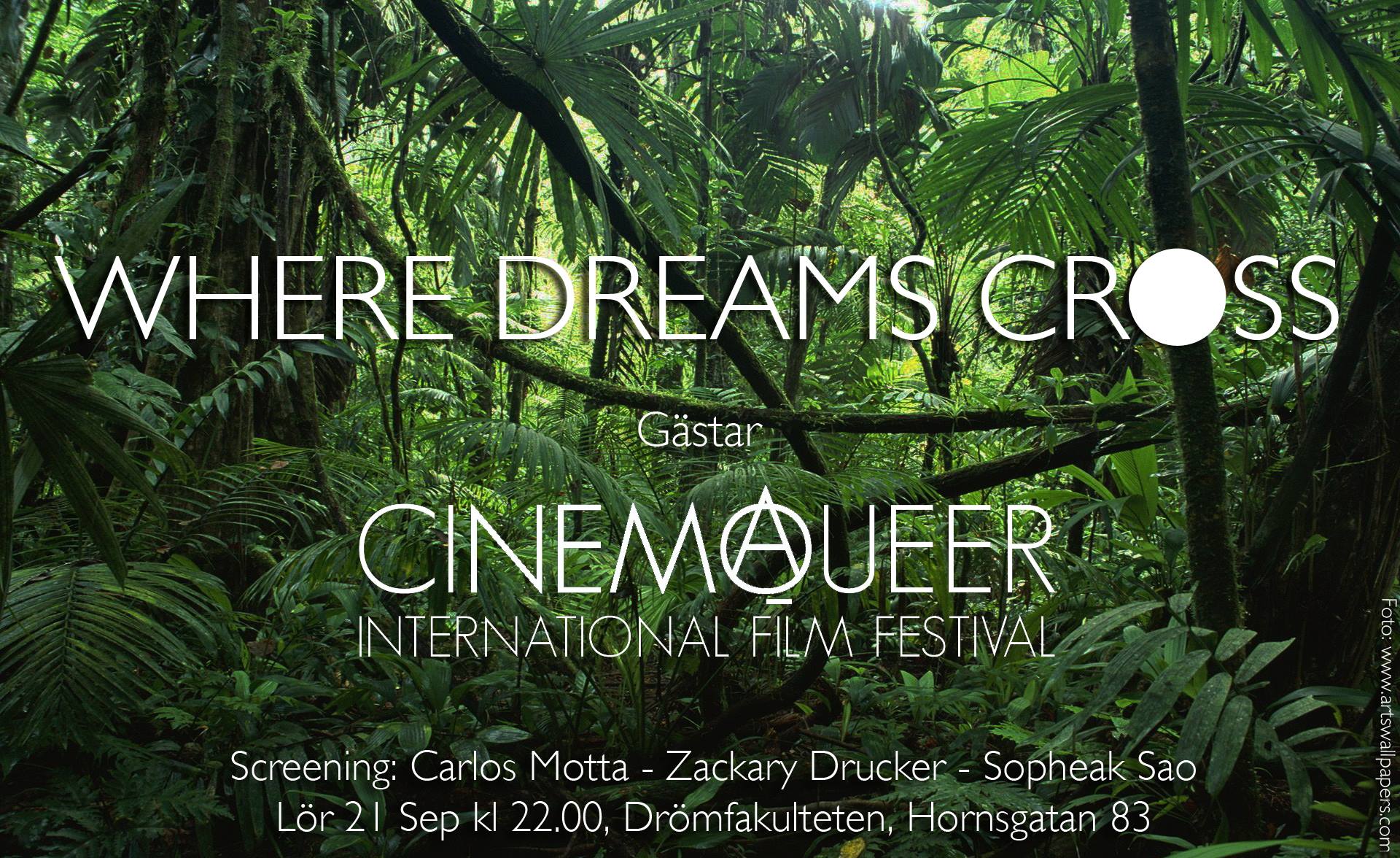
more info
Group Exhibition | The Temptation of AA Bronson, Witte de With, Rotterdam, September 5- January 5
August 20, 2013
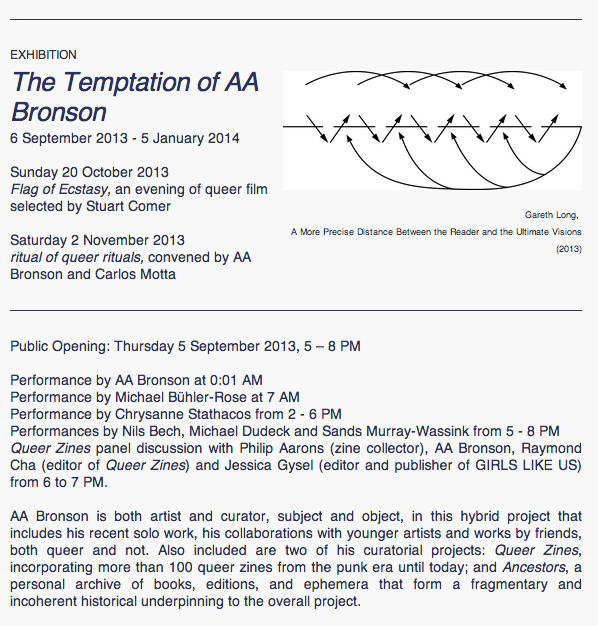
more info here
International Premiére | Toronto International Film Festival, September 8, 2013
August 19, 2013
Nefandus to have International Premiére in Wavelenghts Program – Toronto International Film Festival 2013
“An evocative essay on pre-conquest homoeroticism, Nefandus searches for traces of untold stories and stigmatized historical accounts.” — TIFF

More info here
Talk | AA Bronson and Carlos Motta to Speak at Hyperallergic’s Wed Aug 21 ArtTalk
August 14, 2013

On Wednesday, August 21, Hyperallergic will be hosting our next ArtTalk featuring artists AA Bronson and Carlos Motta at The Bedford in Williamsburg, Brooklyn. The topic for that evening’s discussion and conversation is “The Body, Spirit, Sex, Community, Magic, and the Other,” which will be one of the focuses of the upcoming exhibition of AA Bronson’s work, The Temptation of AA Bronson, at the Witte de With Center for Contemporary Art in Rotterdam, Netherlands.
More info here
Workshop and Talk | Sex (Art) and the City, July 31-August 2, 2013
July 23, 2013
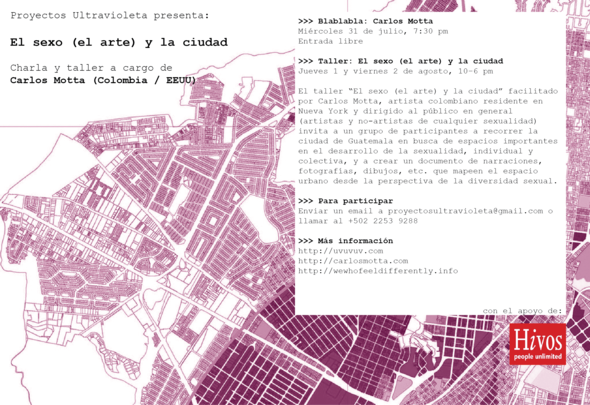
more info here
Award | Carlos Motta wins best video award in LOOP 2013, Barcelona
May 28, 2013
CARLOS MOTTA was the winner of Catalonia Rambles Award 2013, with the video “Nefandus” (2013) announced the jury composed by by Valentijn Byvanck, Bartomeu Marí, Mark Nash and Dirk Snauwaert, aquisition award by Screen Project/Loop to lent for MACBA – Museum of Contemporary Art of Barcelona, Spain.
More info here







